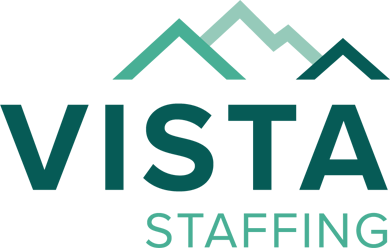Back to The Workforce Optimization Blog
Potential Hiring Pitfalls in the Offer and Acceptance Stage

Many businesses searching for qualified candidates find an undersupply of workers due to the low unemployment numbers. The Bureau of Labor Statistics says the unemployment rate so far in 2021 is about 6%, an 18-year low. The job market is roaring back from the historic lows of the pandemic (14.8%) unemployment, which means it is a job-seekers market.
Almost 30% of candidates who accept job offers leave within 90 days of employment, and some never show up for that first day at work. The reasons are most likely as varied as the applicants themselves, but one seems pervasive: candidates in today’s job market receive multiple offers. So if a better job offer comes along after they accept yours, they may not show up for work on the first day. And no-shows cost the company additional time and money.
Let’s dive into a brief description of the potential hiring pitfalls in the offer and acceptance stage that you need to keep your eyes on and the steps you can take to avoid them.
Look Out for These Potential Hiring Pitfalls.
Hiring managers face a challenge in the current job market. Candidates feel empowered to research potential employers. Internet savvy, they not only know how to do research, but they also display great comfort with the process. They review social media platforms, employee critical opinions, and the corporate posted responses to those criticisms.
Candidates expect that research into a potential employer is a necessary part of a candidate’s due diligence to uncover an employer’s employment practices and, in some cases, the employer’s commitment to social values.
Hiring managers need a plan to avoid the potential hiring pitfalls in the offer and acceptance stage. The following are some typical complaints job seekers have about hiring managers:
Not assessing your candidates’ expectations.
To avoid a candidate “ghosting” you, it is important to assess the candidate’s expectations for employment. If a candidate appreciates a potential employer’s commitment to social values, sustainable business practices, or business ethics more than they appreciate a huge salary, you need to know that as a hiring manager. If your company does not provide those work intangibles, that person is probably not a good fit for your organization.
Slow response times.
Potential candidates see slow response times as an outward show of disrespect for them and their job search. Slow responses also indicate either a lack of preparation or a signal that the company’s candidate search is not a priority.
Lack of an onboarding process.
The onboarding process includes licensing, credentialing, health plan acceptance, training in electronic health records, orientation exercises, and training in coding for internal computer systems. The lack of an onboarding procedure that helps candidates attain their professional goals may result in ideal candidates’ decisions to go elsewhere. Those adverse decisions cost the health system to lose dollars in terms of time and money spent on recruiting.
Not negotiating financial compensation as a long-term career growth opportunity.
Candidates in the healthcare field often look for high dollar salaries because they want to pay off medical school loans. However, if your compensation structure falls short of competitors’ compensation, here is a negotiation tactic that may help.
A candidate may reconsider a job offer deficient in dollars if it includes a commitment to:
- Invest in learning and professional education for the candidate, especially for those early in their careers,
- Invest in paying for attendance by candidates at a certain number of professional seminars and industry events, and
- Re-evaluating the potential candidate’s salary after six months of employment.
Not being professional and organized when it comes to the job offer.
Candidates may reconsider their enthusiasm for a company whose hiring managers are disorganized and might come across as unprofessional. Today’s job candidates may appear non-traditional in some respects, but they remain resolved about their desires and expectations. They may negatively view the company’s work ethic if the interview process includes rescheduling interviews, interview cancellations with short notice, or unreturned phone calls.
Steps to Avoid Pitfalls.
Relax in the knowledge that certain steps you can take to avoid the hiring pitfalls in the offer and acceptance stage. Here are a few suggestions:
Accept that candidates might still be looking at other opportunities.
In a job seeker’s market, even candidates you may not score as one of your favorites often receive multiple interview invitations and job offers. Keeping the hiring process moving at a reasonable pace will save your organization time and money.
Strengthen your employer brand/company culture.
Take the opportunity regularly to improve your employer’s brand. A big part of that is making sure your employees are happy with your company’s culture. The negative things they say about you online can hurt you with prospective candidates.
Get the offer out quickly.
Hiring candidates has three rules to remember above all:
- Don’t overschedule interviews for one candidate. Remember there are multiple offers possible for the candidates that have a claim on their time.
- Don’t waste time on candidates that don’t fit the qualifications you set. Do your homework and know what your positions require from a candidate.
- Don’t waste time when making an offer to a successful candidate. If your perfect candidate didn’t apply for the job, move on to the next best, and keep the process moving. After all, some candidates who do not appear perfect at the interview stage become the best employees.
Implement an onboarding process.
The onboarding process is critical. For those people who quit within 90 days of employment, a more substantial onboarding process may have helped deter them from leaving. Hiring managers need to help employees acclimate to the new job, work their way through training sessions, and the other skills they need to succeed in their position.
The Next Steps in the Process.
The recruitment process is intensive and, at the same time, a delicate one. It is important to:
- Know what skills the position requires,
- Assess the expectations of the candidates applying for the job,
- Stay responsive to phone calls and candidate questions, and
- Deliver information professionally, courteously, and on time.
Partnering with VISTA for all of your contingent staffing needs enables your organization to be proactive in developing a strategic staffing plan, containing costs, and delivering continuity of patient care. VISTA staffs clinicians and advanced practitioners from more than 60 specialties. Learn more about our staffing solutions and how we can help lead your health system to success.




